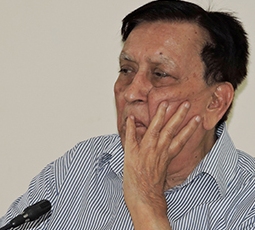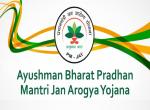It is over fifty years that Pandit Jawaharlal Nehru passed away and his ashes, as he had wished, were flown and scattered all over the lands and heights of Himalayas and immersed in the Ganges to mingle with the earth and water of the country he loved. His will bears testimony to his passionate attachment to the Himalayas and the sacred Ganges representing the age old culture and heritage of India.
After fifty four years of passing away of Nehru, the first Prime Minister of India, it is time to make an objective analysis and appraisal of his role and legacy. The year 2015 began with a goodbye to the Planning Commission which was the flagship of Nehruvian Model envisaged as the mechanism for planned economic development, with public sector undertakings occupying the commanding heights of the economy. Many political observers believe that Nehru had done blatant injustice to great leaders of freedom struggle and nation builders like Sardar Patel, Dr. Rajendra Prasad, Subhash Chandra Bose, Jayaprakash Narayan and many others. They are all our national icons and not the monopoly of any party. However, the rich legacy attributed to Nehru in various fields is certainly is not without substance.
No one can deny Nehru’s prominent role in the freedom struggle, in building the parliamentary system, settling the basic objectives of the Constitution, giving to the nation a solid infrastructure in science, technology and research in space and nuclear fields, in laying foundations of industrialisation and building an independent foreign policy based on principles of non-alignment, prohibition of nuclear weapons, disarmament, co-existence and world peace.
However, Nehru could not escape from the eyes of his critics who point out his many negative legacies including partition of India, problems with China and Pakistan, the inspector and licence raj in the name of socialistic pattern of society resulting in poor record of development and widespread corruption and much else. Above all, Nehru is blamed for the Kashmir problem, divisive politics and an electoral system leading to politicisation of religious and ethnic differences to build separate identity based vote banks.
After centuries of foreign rule, the Indian people had hoped that the sun would shine for them and the dark days of the Raj would be over. Their dream was strengthened when they found that the freedom struggle was led by none other than Mahatma Gandhi who had said that “The Swaraj of my dream is the poor man’s Swaraj. The necessaries of life should be enjoyed by you in common with those enjoyed by the princes and moneyed man… I have not the slightest doubt that Swaraj is not Poorna Swaraj until these amenities are guaranteed to you under it.” (Young India, 26 March, 1931).
But, this did not happen even after more than half a century of Independence. Who is to be blamed for this failure? The people of India are justified to question as to what went wrong with the foundation of India. The fact is, after Independence, the prime responsibility for giving proper direction to build a new India had fallen squarely on the shoulders of Jawaharlal Nehru. By virtue of his being Gandhi’s ‘political heir’ it was incumbent on Nehru, the first Prime Minister of India, who had by then become ‘the only leader’ in the dominant Congress Party, to become a role model by following Gandhi’s traditional austerity and legacy of politics based on Indian ethical values, with a sense of service to the people. But, Nehru clearly failed to do so in spite of the fact that he enjoyed unbridled supremacy over both the party and the government for the first seventeen years of Independence. Political analysts feel that Nehru’s failure was mainly because of his own greed for autocratic hold on both the government and the party, his own ideas of implementation of socialism, lack of understanding and appreciation of the poor man’s requirements and of rural India.
Nehru can not escape the criticism that the Gandhian credentials were not followed in actual practice. Misuse of power for personal gains, corruption, moving away from basic ideals like service to the people and such other malaise started creeping into politics in the very first phase of Independence. With the political malady increasing, the political scenario in India in post-Independence India has moved completely in a direction against the expectation of the people who keenly look forward to true freedom —freedom in the dictionary sense of the term. In the last seventy years of Independence, degradation of political values has reached the lowest stage of degeneration, causing the failure of parliamentary democracy. In this decade, the outcry against the systematic failure has become vociferous in every quarter.
Nehru devoted most of his time to his own personality building. His arbitrary, autocratic and impulsive decisions shaped India’s political culture in such a way that it diverted the course of politics to the point of systemic failure for the first six decades of Independence. Nehru followed an elitist policy in the name of the uplift of the masses that adored him and had implicit faith in his ability to improve their lot. Thus, the very crucial first seventeen years of Independence which should have been devoted to create a very firm foundation for social, political and economic regeneration of the country were, one can say, wasted in pursuit of Nehru’s fanciful ideas.
What is needed is an objective assessment of Nehru’s policy and their impact on subsequent history, without getting into partisan controversies and contrary perceptions. It would not be fair to place all the ills of the present day at his door, yet, it would be in the fitness of things and without any malice to trace their roots to the valiant freedom fighter that Nehru undoubtedly was, before becoming unquestioned ruler of the country.
(The paper does not necessarily represent the organisational stance. The author certifies that the article/paper is original in content, unpublished and it has not been submitted for publication/web upload elsewhere, and that the facts and figures quoted are duly referenced, as needed, and are believed to be correct).
Image Source: http://yugaparivartan.com/wp-content/uploads/2016/04/a1.jpg











Post new comment